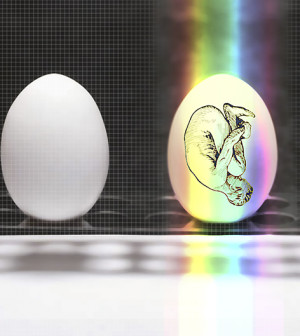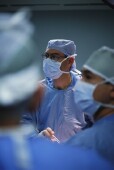- 7 Best Breads for Maintaining Stable Blood Sugar
- Gelatin vs. Collagen: Which is Best for Skin, Nails, and Joints?
- The Long-Term Effects of Daily Turmeric Supplements on Liver Health
- Could Your Grocery Store Meat Be Causing Recurring UTIs?
- Are You Making This Expensive Thermostat Error This Winter?
- Recognizing the Signs of Hypothyroidism
- 10 Strategies to Overcome Insomnia
- Could Artificial Sweeteners Be Aging the Brain Faster?
- Techniques for Soothing Your Nervous System
- Does the Water in Your House Smell Funny? Here’s Why
Double Mastectomy Benefits May Be Overrated for Some


Many breast cancer patients wrongly believe that having both breasts removed — a double mastectomy — will improve their chance of survival, a new study finds.
“Our finding that so many women are receiving much more extensive surgery than needed to treat their disease is striking,” study lead author Dr. Reshma Jagsi, associate professor of radiation oncology at the University of Michigan Medical School in Ann Arbor, said in a university news release.
Researchers surveyed more than 1,900 women treated for breast cancer. They found that nearly half had considered having a double mastectomy, but only about one in five underwent the procedure. Many who had the more aggressive surgery had no risk factors, such as family history of breast cancer, that would increase their odds for cancer in the second breast.
Of those who considered the surgery, 37 percent knew that it did not improve the chance of survival, the study authors said.
Among the women who did have both breasts removed, 36 percent believed it would improve their chance of survival, according to the study presented at this week’s annual meeting of the American Society of Clinical Oncology, in Chicago.
Previous research has shown that among breast cancer survivors at average risk for a second cancer, removing the cancer-free breast does not significantly improve survival, the researchers said.
“Women diagnosed with breast cancer are naturally eager to do everything in their power to fight the disease. So many of my patients tell me that they just want to do everything they can to be there for their kids,” Jagsi explained.
“It is up to us, as doctors, to make sure they understand which treatments are really going to do that, and which actions might seem heroic but are actually not expected to improve the outcomes for a typical woman with early stage breast cancer,” Jagsi said.
The study found that surgeons had significant influence on a woman’s decision. Only 4 percent of patients who said their surgeon recommended against double mastectomy had the procedure, compared with 59 percent of those who believed their surgeons were in favor of the surgery.
Double mastectomy has been in the spotlight recently. In 2013, actress Angelina Jolie announced she had had a preventive double mastectomy because of a strong family history of breast and ovarian cancer. She’d also tested positive for the genetic mutation BRCA1, which raises breast cancer risk.
Data and conclusions presented at meetings are usually considered preliminary until published in a peer-reviewed medical journal.
More information
The American Cancer Society has more about surgery for breast cancer.
Source: HealthDay
Copyright © 2026 HealthDay. All rights reserved.










